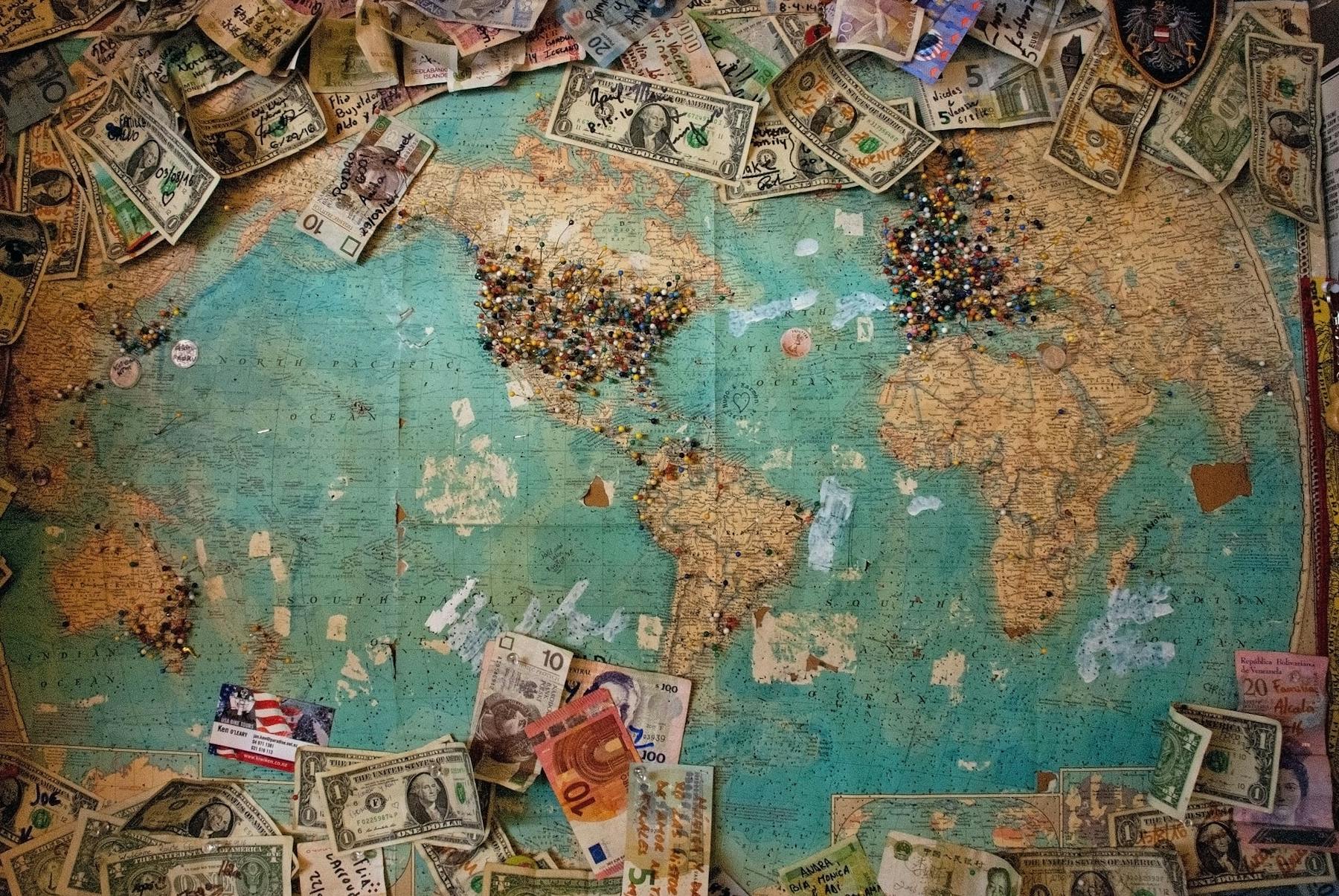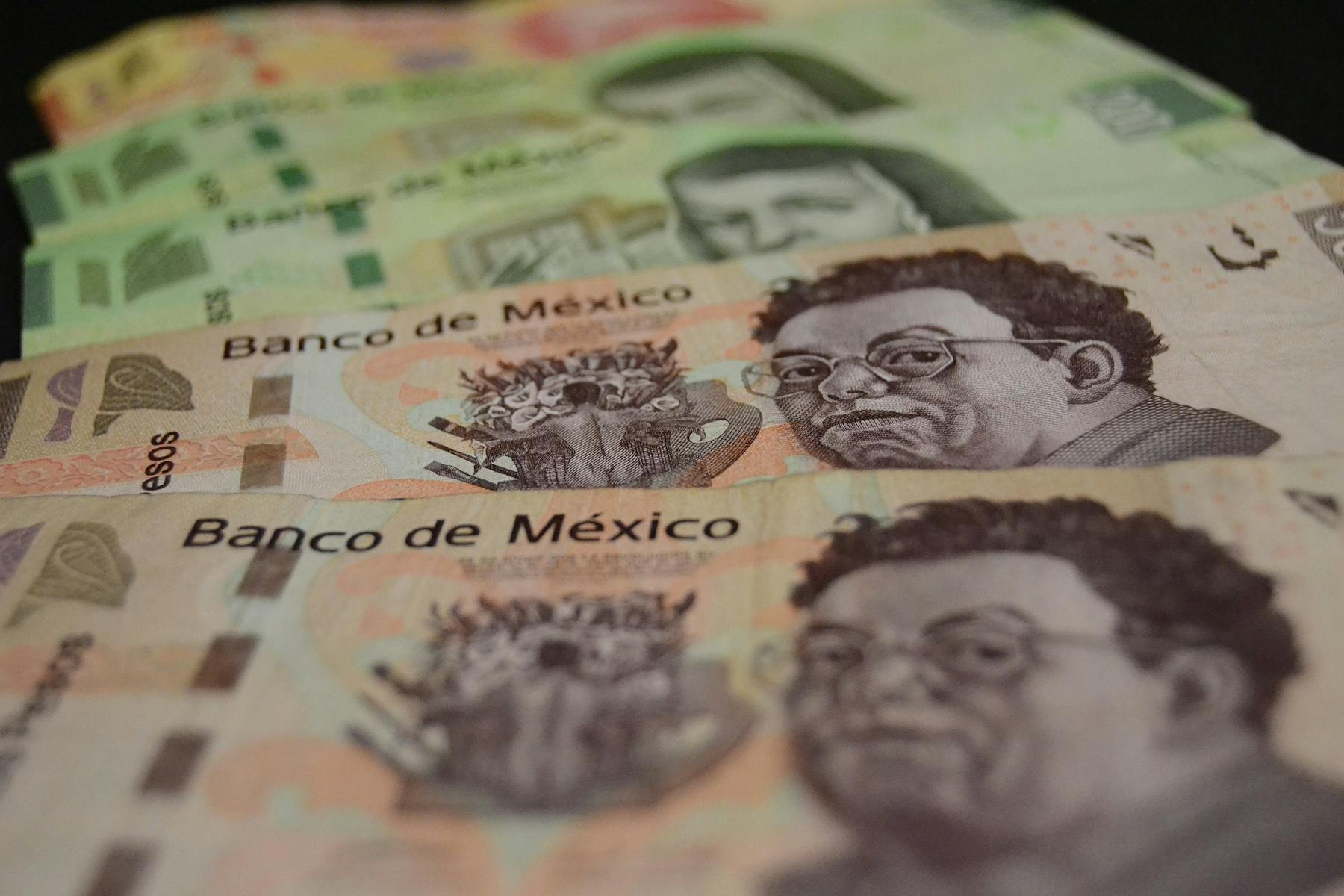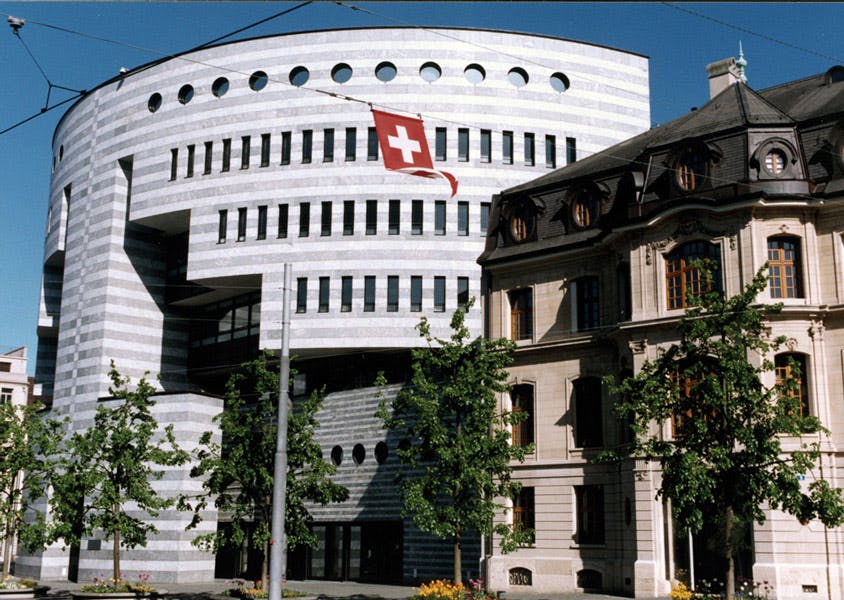 Pixabay
Pixabay The eNaira Is Here: Exploring Nigeria’s First-of-a-Kind CBDC Gamble (The Monito Briefing Issue #16)

Byron Mühlberg
Guide

Monito's Managing Editor, Byron has spent several years writing extensively about financial- and migration-related topics.
Hello and welcome back to the Monito Briefing. This week — a month on from the fast-paced launch of the eNaira in Nigeria — what can we learn from the digital currency's ambitious rollout? Are emerging market economies more interested in issuing CBDCs than advanced ones? And finally, are other emerging markets even making progress toward CBDCs in the first place?
Industry Highlights
To start things off, here are a few of the top headlines you may have missed over the past two weeks:
- Mexico is on track to break another inward remittance volume record in 2021 after reporting seven consecutive months of inflows above $4 billion. Similar Q3 growth has been reported in the Dominican Republic, Egypt, Kenya, and other countries.
- Russian payment services giant Qiwi upgraded its forecasted net profit decrease after a 40.5% YoY growth of its remittances segment, according to Reuters.
- Synch Payments, a money transfer app backed by major Irish banks to rival Revolut, has raised €5 million in venture funding and is set to begin focusing on its consumer-to-consumer payments segment.
- N26 is set to close down operations in the US as part of a move to strengthen its core business operations in Europe. The digital bank has given its 500,000 US customers until 11 January to find a new place to deposit their cash.
Nigeria's First-of-a-Kind CBDC Rollout
Before we get into the details, let's look at what happened last month in Nigeria. On 25 October, the Central Bank of Nigeria (CBN) joined the ranks of China and the Bahamas in rolling out an early-stage central bank digital currency (CBDC) program — the first of its kind in Africa and arguably the largest such program in the world currently given the size and complexity of Nigeria's economy.
Called the "eNaira" (equipped with its very own website, slogan, and P2P mobile payments app), the new digital currency is valued 1:1 with the NGN. It can already be used as legal tender in Nigeria, adding to the existing currency-in-circulation. According to the CBN, the eNaira will also be their direct liability. This puts the eNaira on the same level as physical Naira banknotes and coins.
Based on the CBN's communication about the project so far (which mainly consists of a 14-page regulatory guidelines document), the digital currency is to be transacted on a peer-to-peer basis via digital wallets. The eNaira blockchain tokens themselves will be "minted" by the CBN through a centralized system, integrated with private-sector financial institutions for holdings, requests, and redemptions (e.g. treasury notes) in the digital currency. The eNaira wallet platform itself will consist of five separate wallets as follows:
- Stock Wallet: A single CBN-owned wallet where eNaira tokens are stored before being distributed (a similar idea to "premining" in private sector blockchain).
- Treasury Wallets: Owned by Nigeria's big banks through which eNaira can be received from the Stock Wallet and distributed down the chain.
- Branch Wallets: A sub-division of Treasury Wallets for bank branches.
- Merchant Speed Wallets: Bank-to-merchant apps for receiving and making eNaira payments in exchange for goods and services.
- Speed Wallets: Bank-run apps that allow end-users to transact in eNaira.
According to the CBN, every rung of the ladder will be connected by P2P technology to allow for effective and tight monetary control.
Presently, Nigerian consumers can open eNaira wallets using only a passport photograph and personal information (including name, gender, address, telephone number, etc.). However, this 'tier' allows only ₦20,000 (around $50) in daily transactions and a ₦120,000 (around $290) maximum account balance. On the other hand, fully-verified wallets allow up to ₦1 million (around $2,400) in daily transactions and ₦5 million (around $12,200) as a maximum balance.
A Help or Hindrance For Cross-Border Payments?
Most people who've been following monetary developments — and indeed broad economic developments — in Nigeria over the past year or two will realize that the timing of the eNaira comes at a precarious moment:
Nigeria is a country that's been struggling to keep its embattled currency afloat for a while now. A year ago, in December 2020, the central bank forbade inflows into Nigeria in the local currency, alleging that money transfer operators had been taking advantage of black-market exchange rates and destabilizing the currency. The decision still holds force today, with exceptions having been made for certain systemic operators, including Western Union, MoneyGram, WordRemit, and Remitly.
Indeed, the disparity between the official exchange rate and the one traded on the black market is revealing: the CBN pegged a fixed rate of 480 NGN to the USD in May, but estimates put the black-market rate at closer to 570, driven by large-scale trading in Nigeria's vast informal sector (which, by some estimates, makes up around 65% of GDP).
Aside from a volatile currency and strict exchange controls, Nigeria has also recently experienced high consumer price inflation and goods shortages.
All of this has contributed to a difficult market for inward remittances to Nigeria, which constituted an impressive $24 billion in inflows in 2019 according to the World Bank. However, the CBN believes the eNaira will go a long way in alleviating industry-specific woes, the proposed solutions to some of which include:
- High fees: By eliminating the reliance on slow and costly correspondent banking networks, it's hoped that the eNaira will simplify intermediation chains and make 24/7 settlements, bringing down prices in the process.
- Guarantee of full receipt: Real-time gross settlement subject to security and recovery processes.
- Lack of interoperability: To spur financial inclusion, the CBN intends for the eNaira to be used in wallet form regardless of whether or not the user owns a bank account, accessible via agent outlets in rural communities.
As ambitious as this project may be, unfortunately for curious observers and Nigerian remittees alike, it's just too early to tell whether the eNaira will have its desired effect or whether it will be consigned to become an out-of-touch bureaucratic imposition.
In the end — while it's likely that CBDCs will become more widespread — most central banks are still pondering over the very questions that took Nigeria a matter of months not only to research conceptually but to implement fully.
That said, other central banks aren't far behind, and many share the broad consensus that issuing CBDCs will improve cross-border payment efficiency. According to a 2020 survey by the BIS of 66 central banks (which together represent 75% of the world population and 90% of economic output), the issuance of CBDCs was never ranked below 2/4 or "Important" for cross-border payment efficiency according to respondents:Nigeria's First-of-a-Kind CBDC Rollout
Before we get into the details, let's look at what happened last month in Nigeria. On 25 October, the Central Bank of Nigeria (CBN) joined the ranks of China and the Bahamas in rolling out an early-stage central bank digital currency (CBDC) program — the first of its kind in Africa and arguably the largest such program in the world currently given the size and complexity of Nigeria's economy.
Called the "eNaira" (equipped with its very own website, slogan, and P2P mobile payments app), the new digital currency is valued 1:1 with the NGN. It can already be used as legal tender in Nigeria, adding to the existing currency-in-circulation. According to the CBN, the eNaira will also be their direct liability. This puts the eNaira on the same level as physical Naira banknotes and coins.
Based on the CBN's communication about the project so far (which mainly consists of a 14-page regulatory guidelines document), the digital currency is to be transacted on a peer-to-peer basis via digital wallets. The eNaira blockchain tokens themselves will be "minted" by the CBN through a centralized system, integrated with private-sector financial institutions for holdings, requests, and redemptions (e.g. treasury notes) in the digital currency. The eNaira wallet platform itself will consist of five separate wallets as follows:
- Stock Wallet: A single CBN-owned wallet where eNaira tokens are stored before being distributed (a similar idea to "premining" in private sector blockchain).
- Treasury Wallets: Owned by Nigeria's big banks through which eNaira can be received from the Stock Wallet and distributed down the chain.
- Branch Wallets: A sub-division of Treasury Wallets for bank branches.
- Merchant Speed Wallets: Bank-to-merchant apps for receiving and making eNaira payments in exchange for goods and services.
- Speed Wallets: Bank-run apps that allow end-users to transact in eNaira.
According to the CBN, every rung of the ladder will be connected by P2P technology to allow for effective and tight monetary control.
Presently, Nigerian consumers can open eNaira wallets using only a passport photograph and personal information (including name, gender, address, telephone number, etc.). However, this 'tier' allows only ₦20,000 (around $50) in daily transactions and a ₦120,000 (around $290) maximum account balance. On the other hand, fully-verified wallets allow up to ₦1 million (around $2,400) in daily transactions and ₦5 million (around $12,200) as a maximum balance.
A Help or Hindrance For Cross-Border Payments?
Most people who've been following monetary developments — and indeed broad economic developments — in Nigeria over the past year or two will realize that the timing of the eNaira comes at a precarious moment:
Nigeria is a country that's been struggling to keep its embattled currency afloat for a while now. A year ago, in December 2020, the central bank forbade inflows into Nigeria in the local currency, alleging that money transfer operators had been taking advantage of black-market exchange rates and destabilizing the currency. The decision still holds force today, with exceptions having been made for certain systemic operators, including Western Union, MoneyGram, WordRemit, and Remitly.
Indeed, the disparity between the official exchange rate and the one traded on the black market is revealing: the CBN pegged a fixed rate of 480 NGN to the USD in May, but estimates put the black-market rate at closer to 570, driven by large-scale trading in Nigeria's vast informal sector (which, by some estimates, makes up around 65% of GDP).
Aside from a volatile currency and strict exchange controls, Nigeria has also recently experienced high consumer price inflation and goods shortages.
All of this has contributed to a difficult market for inward remittances to Nigeria, which constituted an impressive $24 billion in inflows in 2019 according to the World Bank. However, the CBN believes the eNaira will go a long way in alleviating industry-specific woes, the proposed solutions to some of which include:
- High fees: By eliminating the reliance on slow and costly correspondent banking networks, it's hoped that the eNaira will simplify intermediation chains and make 24/7 settlements, bringing down prices in the process.
- Guarantee of full receipt: Real-time gross settlement subject to security and recovery processes.
- Lack of interoperability: To spur financial inclusion, the CBN intends for the eNaira to be used in wallet form regardless of whether or not the user owns a bank account, accessible via agent outlets in rural communities.
As ambitious as this project may be, unfortunately for curious observers and Nigerian remittees alike, it's just too early to tell whether the eNaira will have its desired effect or whether it will be consigned to become an out-of-touch bureaucratic imposition.
In the end — while it's likely that CBDCs will become more widespread — most central banks are still pondering over the very questions that took Nigeria a matter of months not only to research conceptually but to implement fully.
That said, other central banks aren't far behind, and many share the broad consensus that issuing CBDCs will improve cross-border payment efficiency. According to a 2020 survey by the BIS of 66 central banks (which together represent 75% of the world population and 90% of economic output), the issuance of CBDCs was never ranked below 2/4 or "Important" for cross-border payment efficiency according to respondents:

This was equally true for both advanced and emerging market economies with respect to retail CBDCs for end-users. This is intriguing because it comes in spite of the apparent enthusiasm among many emerging markets to embrace fintech and cashless innovations.
On the other hand, wholesale CBDCs (held by financial institutions with reserve deposit requirements set by the central bank) were on average (perhaps unsurprisingly) deemed more important by central bankers from both emerging market and advanced economies, but particularly those in advanced economies.
Are These The Next Emerging Market CBDCs?
Now that we've explored how the eNaira works and the uniqueness of Nigeria's CBDC program in emerging markets, let's finish up with a quick look at other notable emerging market economies whose central banks are currently researching CBDCs:
- Ghana: In August, the Bank of Ghana partnered with German payments firm Giesecke+Devrient (G+D) to pilot the 'e-Cedi' as a digital alternative to cash.
- South Africa: In April, the South African Reserve Bank launched a study to gauge the feasibility and desirability of a retail CBDC in South Africa. It has since teamed up with the BIS and central banks in Singapore, Malaysia, and Australia as part of Project Dunbar to trial a multi-CBDC platform for cross-border use.
- Turkey: In January, the Central Bank of Turkey announced it would trial a CBDC in the second half of 2021. It followed up in September by confirming that it will work with tech stakeholders on the research and development of a digital Lira.
See you in the next issue! Best wishes,
Byron Mühlberg
Writer & Editor at Monito.com
Subscribe to The Monito Briefing to keep on top of key trends in cross-border payments
News of the Remittances Industry




Other Monito Briefing Issues






Why Trust Monito?
You’re probably all too familiar with the often outrageous cost of sending money abroad. After facing this frustration themselves back in 2013, co-founders François, Laurent, and Pascal launched a real-time comparison engine to compare the best money transfer services across the globe. Today, Monito’s award-winning comparisons, reviews, and guides are trusted by around 8 million people each year and our recommendations are backed by millions of pricing data points and dozens of expert tests — all allowing you to make the savviest decisions with confidence.
Monito is trusted by 15+ million users across the globe.
Monito's experts spend hours researching and testing services so that you don't have to.
Our recommendations are always unbiased and independent.